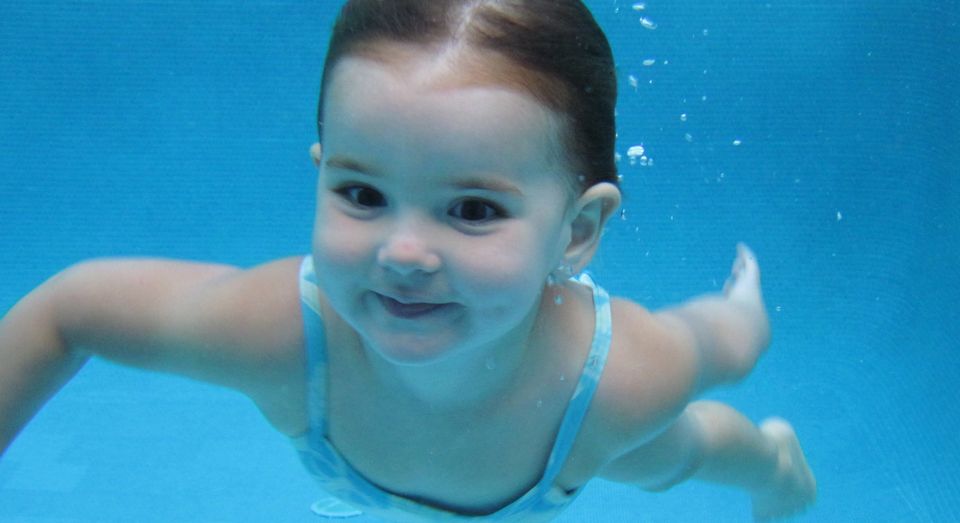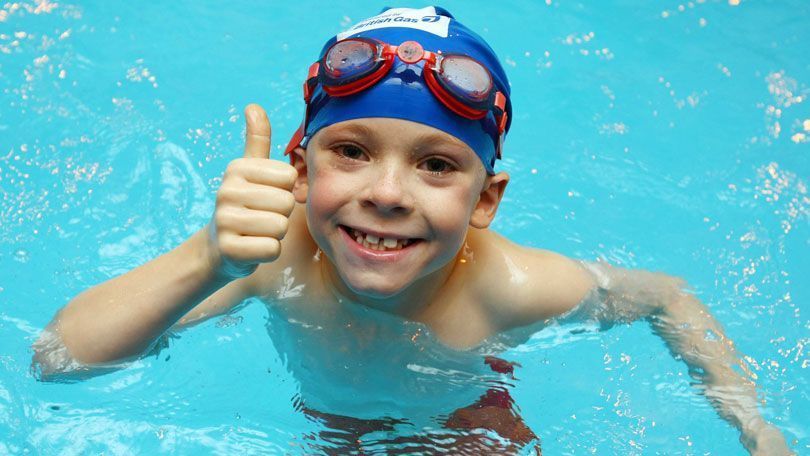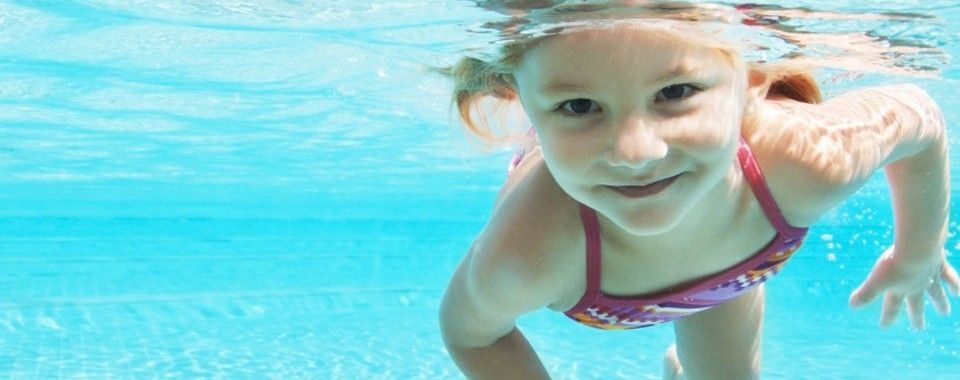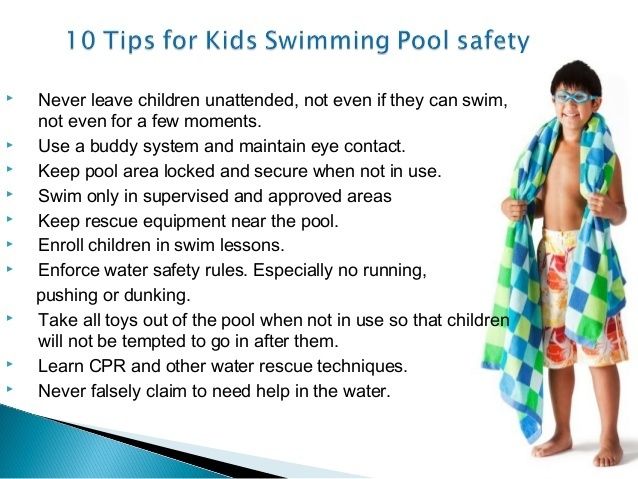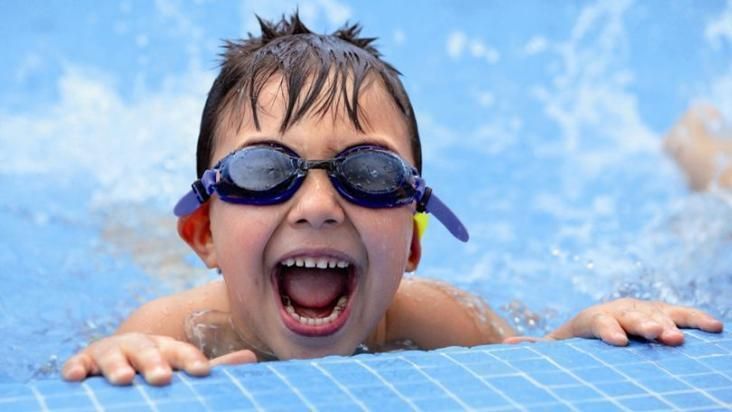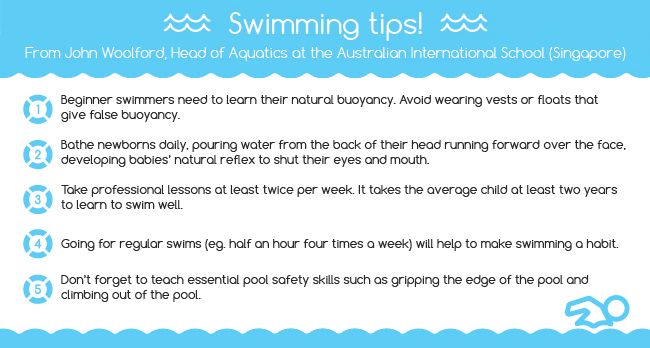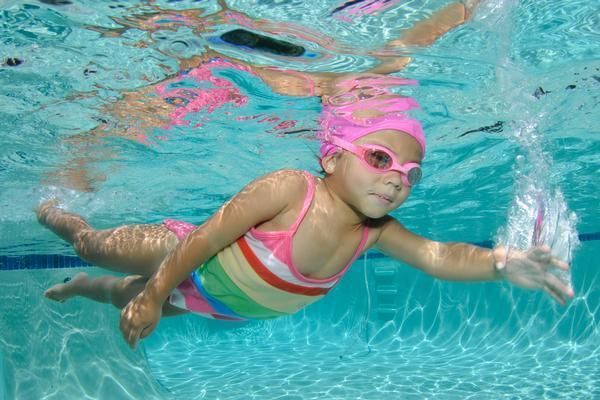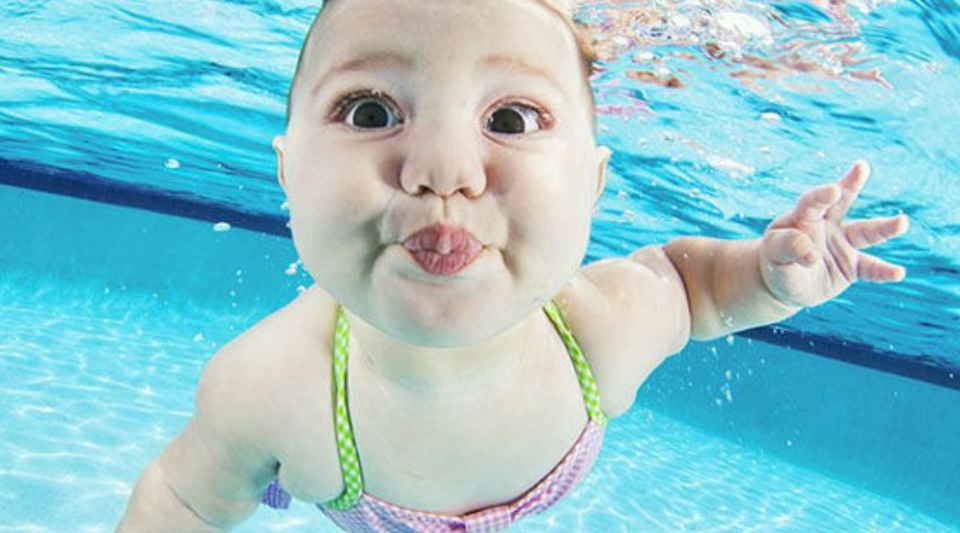
Three Reasons Why Swimming Lessons are Important for Kids
Everyone should know how to swim. Swimming is a life skill – and it’s fun! Teaching kids to swim early and making it entertaining helps to create a lifetime of opportunities for our children to experience the world.
1. Swimming Keeps Kids Active
Adults know that few kinds of exercise are better than swimming. Swimming involves all muscles in a low impact way. Swimming is a great total body workout that helps kids develop strength and coordination without realizing they’re doing so. Plus, swimming is a fitness activity you can do for life – people can swim from ages 3 to 93 (or older!).
2. Learning to Swim Keeps Kids Safe
Swimming is a life skill that everyone should have. Whether it’s neighborhood pool parties, class picnics, beach trips, family vacations, or something else, kids will undoubtedly be exposed to the opportunity to swim in a pool, lake, or ocean. As their friends swim – or leave the shallow water – or go down a pool slide – or jump into the ocean – we want our kids to be able to join them safely. Swim lessons make that possible.
3. Swimming Boosts Self-Confidence
Learning to swim is not always easy. Swimming takes practice. But when you learn a new skill you didn’t have before, whether it’s blowing bubbles in the water, the front crawl, safe diving, the breaststroke or anything else, you become more confident not only in your ability to be safe in the water but also in your ability to face obstacles and challenges and overcome them. Kids who learn to swim develop confidence and resilience.
1. Swimming Keeps Kids Active
Adults know that few kinds of exercise are better than swimming. Swimming involves all muscles in a low impact way. Swimming is a great total body workout that helps kids develop strength and coordination without realizing they’re doing so. Plus, swimming is a fitness activity you can do for life – people can swim from ages 3 to 93 (or older!).
2. Learning to Swim Keeps Kids Safe
Swimming is a life skill that everyone should have. Whether it’s neighborhood pool parties, class picnics, beach trips, family vacations, or something else, kids will undoubtedly be exposed to the opportunity to swim in a pool, lake, or ocean. As their friends swim – or leave the shallow water – or go down a pool slide – or jump into the ocean – we want our kids to be able to join them safely. Swim lessons make that possible.
3. Swimming Boosts Self-Confidence
Learning to swim is not always easy. Swimming takes practice. But when you learn a new skill you didn’t have before, whether it’s blowing bubbles in the water, the front crawl, safe diving, the breaststroke or anything else, you become more confident not only in your ability to be safe in the water but also in your ability to face obstacles and challenges and overcome them. Kids who learn to swim develop confidence and resilience.
PHYSICAL HEALTH BENEFITS OF SWIM LESSONS FOR KIDS
Many parents have an interest in putting their kids into swimming lessons because of the safety factor. And while helping your child learn to swim and be safe around water are some of the most worthwhile motivations for enrolling them in class, there are even further benefits beyond this. In fact, the overall health benefits for kids that accompany regular swimming lessons are astounding!
If you’re looking to keep your kids active, swimming is one ideal activity to pursue. Learning to swim helps improve children’s cardiovascular health, stamina, and flexibility, as well as many other components of physical health. Beyond all the advantages we detail below 7,000 kids around the world concluded that those in swim lessons were at least seven months ahead of their non-swimming peers in overall motor development. Keep reading to learn more.
Strength
The amount of physical development that takes place over the first few years of a child’s life is remarkable. Babies go from being unable to even hold their own heads up to nearly running within a single year. And then it’s impossible not to keep kids active! But building strength should not come to an end once a child has mastered the most fundamental motor skills. Swim lessons provide numerous health benefits for kids, and strength building is one of them. By using their own body weight in the water, kids’ muscles are challenged and strengthened in a safe, gentle way. The water offers significant resistance and goes a long way in helping kids become stronger and healthier.
Balance
Balance is something that adults often take for granted (yoga class anyone?), but all it takes is one look at an unsteady toddler to remind us that even walking requires a good deal of balance. In order to improve a child’s balance, their core must be strengthened and their balance must be tested regularly. By keeping kids active in swim classes, both of these objectives will be met. Depending on the skill level and curriculum, children might learn to balance on a pool noodle or a floating kickboard during swim class. These unstable surfaces, along with embracing new swimming strokes, teach kids how to balance proficiently.
Posture
When you promote an active lifestyle for kids, their entire lives change for the better. Regular exercise, higher-quality nutrition, and energy all go hand-in-hand. But something that is every bit as intertwined – and yet not as often discussed – is posture. The erect posture requires core strength and can help a child feel more self-confident. Swimming lessons help to engage numerous muscles in a little one’s body, and also naturally position the child to have better posture. This might be seemingly simple, but proper posture can positively impact numerous areas of a child’s life.
So as you look for activities that return the greatest amount of health benefits for kids, consider swimming. Contact us to enroll your child in classes today!
If you’re looking to keep your kids active, swimming is one ideal activity to pursue. Learning to swim helps improve children’s cardiovascular health, stamina, and flexibility, as well as many other components of physical health. Beyond all the advantages we detail below 7,000 kids around the world concluded that those in swim lessons were at least seven months ahead of their non-swimming peers in overall motor development. Keep reading to learn more.
Strength
The amount of physical development that takes place over the first few years of a child’s life is remarkable. Babies go from being unable to even hold their own heads up to nearly running within a single year. And then it’s impossible not to keep kids active! But building strength should not come to an end once a child has mastered the most fundamental motor skills. Swim lessons provide numerous health benefits for kids, and strength building is one of them. By using their own body weight in the water, kids’ muscles are challenged and strengthened in a safe, gentle way. The water offers significant resistance and goes a long way in helping kids become stronger and healthier.
Balance
Balance is something that adults often take for granted (yoga class anyone?), but all it takes is one look at an unsteady toddler to remind us that even walking requires a good deal of balance. In order to improve a child’s balance, their core must be strengthened and their balance must be tested regularly. By keeping kids active in swim classes, both of these objectives will be met. Depending on the skill level and curriculum, children might learn to balance on a pool noodle or a floating kickboard during swim class. These unstable surfaces, along with embracing new swimming strokes, teach kids how to balance proficiently.
Posture
When you promote an active lifestyle for kids, their entire lives change for the better. Regular exercise, higher-quality nutrition, and energy all go hand-in-hand. But something that is every bit as intertwined – and yet not as often discussed – is posture. The erect posture requires core strength and can help a child feel more self-confident. Swimming lessons help to engage numerous muscles in a little one’s body, and also naturally position the child to have better posture. This might be seemingly simple, but proper posture can positively impact numerous areas of a child’s life.
So as you look for activities that return the greatest amount of health benefits for kids, consider swimming. Contact us to enroll your child in classes today!
The A - Z of why swimming is great for kids
If you are looking for an exercise to get your children active, or are wondering about why swimming is regarded as one of the most beneficial activities for young people, look no further than our following A – Z to the benefits of swimming for kids.
Active lives – Kids who live active lives are happier, healthier, and smarter because they keep their blood pumping through their bodies and brains, which is essential for development in children.
Balance – Our bodies have to maintain a streamline, horizontal body position when we swim, so swimming regularly can help children develop and improve good balance.
Confidence – Swimming is a great confidence builder, helping children become body confident and develop a belief in their athletic abilities and in their social skills, especially as part of a team.
Dedication – Becoming good at swimming teaches children to become disciplined. They may have to dedicate more time to the pool and give up other activities to become better. This level of dedication at an early age can set children up for difficult decisions in the future.
Endurance – Swimming builds your kids' muscles and their lung capacity as well as providing the strength of character to push further and endure longer.
Friends – Whether as part of a team or as an individual, swimming is a great way for kids to meet people from different backgrounds and other schools, particularly when participating in championships.
Good times – Being a confident swimmer means your child will be able to take part in a huge range of fun activities, such as splashing about in the sea, kayaking, sailing or going to water parks.
Health – There is no better sport for overall health than swimming. It’s great for your heart and circulation, provides natural, low-impact resistance for building muscle and as it challenges your body it will help release endorphins - your body’s natural pain and stress fighters which also make you feel happy.
Intelligence – A study has shown that holding your breath can increase your intelligence. Professor Win Wenger says that whenever you start to give attention to any awareness of stimulus, you hold your breath, and your breath is a pacemaker for your attention span, so the longer you hold your breath the more you can take in. Swimming, he says is THE best exercise for building lung capacity, which enables you to take in more information.
Joints – Because of the natural support and resistance provided by water, swimming is a fantastic activity for developing strong joints and for exercising joints that are injured or damaged.
Keeping going – Swimming is a great way to teach determination in children because you can’t give up halfway across a pool or halfway towards the shore.
Life-saving – Being able to swim is a skill that your child will use to keep safe throughout their life and through accredited lifeguard programs, your child could also learn to save others.
Medals – Achieving success at a young age can help build confidence. Many swim schools and competitions award-successful swims with medals, which provide children with tactile emblems of their success, to build confidence even when outside of the pool.
No equipment necessary – You don’t need a pool, you don’t even need trunks or a costume, you just need to find a lake, river or ocean and you can jump straight in. Swimming is a sport that can be enjoyed by everyone.
Outdoors – What better way for your child to experience the great outdoors than diving into its great bodies of water, floating at peace in the wilderness, or exploring the seabed?
Playing – Swimming is a great opportunity for children to play with other children, whether siblings or acquaintances. Playing is an important part of children’s social development, teaching them to accept differences, assert themselves, and consider others among many benefits.
Quality time – In a pool or at the seaside during breaks from work, swimming is a great opportunity for parents and children to bond with their children and share quality time in otherwise busy lives.
Related sports – Swimming can be a gateway to a wide range of sports, from waterpolo to surfing, competitive diving to triathlon.
Safety – Because safety is an essential part of learning to swim, your children learn to be safety-conscious and to be more aware of hazards.
Training – To become a competent or advanced swimmer training is essential, providing your child with a routine to follow that will set them up for life.
Underwater world – Learning to swim will open up your child’s access to a whole other vast world that exists beneath the water. They’ll learn first-hand about sea life, the environment, and history when exploring under the waves.
Vigor – Swimming’s benefits for physical and mental wellbeing mean your child is helped to grow up with vigor.
Weight – Because water is around 800 times denser than air, your body has to work harder to go further, so you burn more calories, keeping your child at a healthy weight, or helping them to lose extra pounds to improve their health.
X-Factor – Because swimming is such a comprehensively great sport for health, wellbeing, social skills, dedication, mental attitude, and more, it provides children with that X-Factor that will help them in all aspects of their life.
Year-round activity – Come rain or shine, winter or spring, swimming is an activity that your child can enjoy all year round.
ZZZZZZZZZZZ – Because swimming uses huge amounts of energy, your children will better fall into a deep sleep in the evening, helping them to develop, rest, and have more energy the next day.
Active lives – Kids who live active lives are happier, healthier, and smarter because they keep their blood pumping through their bodies and brains, which is essential for development in children.
Balance – Our bodies have to maintain a streamline, horizontal body position when we swim, so swimming regularly can help children develop and improve good balance.
Confidence – Swimming is a great confidence builder, helping children become body confident and develop a belief in their athletic abilities and in their social skills, especially as part of a team.
Dedication – Becoming good at swimming teaches children to become disciplined. They may have to dedicate more time to the pool and give up other activities to become better. This level of dedication at an early age can set children up for difficult decisions in the future.
Endurance – Swimming builds your kids' muscles and their lung capacity as well as providing the strength of character to push further and endure longer.
Friends – Whether as part of a team or as an individual, swimming is a great way for kids to meet people from different backgrounds and other schools, particularly when participating in championships.
Good times – Being a confident swimmer means your child will be able to take part in a huge range of fun activities, such as splashing about in the sea, kayaking, sailing or going to water parks.
Health – There is no better sport for overall health than swimming. It’s great for your heart and circulation, provides natural, low-impact resistance for building muscle and as it challenges your body it will help release endorphins - your body’s natural pain and stress fighters which also make you feel happy.
Intelligence – A study has shown that holding your breath can increase your intelligence. Professor Win Wenger says that whenever you start to give attention to any awareness of stimulus, you hold your breath, and your breath is a pacemaker for your attention span, so the longer you hold your breath the more you can take in. Swimming, he says is THE best exercise for building lung capacity, which enables you to take in more information.
Joints – Because of the natural support and resistance provided by water, swimming is a fantastic activity for developing strong joints and for exercising joints that are injured or damaged.
Keeping going – Swimming is a great way to teach determination in children because you can’t give up halfway across a pool or halfway towards the shore.
Life-saving – Being able to swim is a skill that your child will use to keep safe throughout their life and through accredited lifeguard programs, your child could also learn to save others.
Medals – Achieving success at a young age can help build confidence. Many swim schools and competitions award-successful swims with medals, which provide children with tactile emblems of their success, to build confidence even when outside of the pool.
No equipment necessary – You don’t need a pool, you don’t even need trunks or a costume, you just need to find a lake, river or ocean and you can jump straight in. Swimming is a sport that can be enjoyed by everyone.
Outdoors – What better way for your child to experience the great outdoors than diving into its great bodies of water, floating at peace in the wilderness, or exploring the seabed?
Playing – Swimming is a great opportunity for children to play with other children, whether siblings or acquaintances. Playing is an important part of children’s social development, teaching them to accept differences, assert themselves, and consider others among many benefits.
Quality time – In a pool or at the seaside during breaks from work, swimming is a great opportunity for parents and children to bond with their children and share quality time in otherwise busy lives.
Related sports – Swimming can be a gateway to a wide range of sports, from waterpolo to surfing, competitive diving to triathlon.
Safety – Because safety is an essential part of learning to swim, your children learn to be safety-conscious and to be more aware of hazards.
Training – To become a competent or advanced swimmer training is essential, providing your child with a routine to follow that will set them up for life.
Underwater world – Learning to swim will open up your child’s access to a whole other vast world that exists beneath the water. They’ll learn first-hand about sea life, the environment, and history when exploring under the waves.
Vigor – Swimming’s benefits for physical and mental wellbeing mean your child is helped to grow up with vigor.
Weight – Because water is around 800 times denser than air, your body has to work harder to go further, so you burn more calories, keeping your child at a healthy weight, or helping them to lose extra pounds to improve their health.
X-Factor – Because swimming is such a comprehensively great sport for health, wellbeing, social skills, dedication, mental attitude, and more, it provides children with that X-Factor that will help them in all aspects of their life.
Year-round activity – Come rain or shine, winter or spring, swimming is an activity that your child can enjoy all year round.
ZZZZZZZZZZZ – Because swimming uses huge amounts of energy, your children will better fall into a deep sleep in the evening, helping them to develop, rest, and have more energy the next day.
Swimming Lessons Lower Drowning Risk in Toddlers
The wisdom of enrolling toddlers and preschoolers in formal swimming lessons has been debated vehemently over the years. Some people believe even babies should be taught to swim to help protect against drowning. Others say swimming lessons too early in life could decrease a child's fear of water and give parents a false sense of security, thus increasing a toddler's risk of drowning. However, until now, there was no scientific data on the protective effects of swimming lessons in children ages 1 to 4.
A long-awaited study published today concludes that swimming lessons for children ages 1 to 4 lowers the risk of drowning. The study, conducted by the Eunice Kennedy Shriver National Institute of Child Health and Human Development, looked at the association between drowning and swimming lessons in children ages 1 to 19 in six states. Interviews were conducted with the families of 88 children who drowned between 2003 and 2005 and with the families of 213 control children who were the same age, gender and lived in the same county as those who drowned.
The study, published in the Archives of Pediatric and Adolescent Medicine, found that among the 61 children ages 1-4 who drowned, 3% had ever taken formal swimming lessons. In contrast, 26% of the children in the control group had taken swimming lessons. Parent interviews also suggested that children who drowned were less skilled swimmers. Only 5% of them were able to float on their back for 10 seconds compared to 18% of the children in the control group. "From our calculations, we are confident that swimming lessons do not increase drowning risk in this age group and likely have a protective effect," Dr. Ruth A. Brenner, the lead author of the study, said in a news release.
Among children ages 5 to 19, 27% of those who drowned had taken swimming lessons compared to 53% of the control group. This also suggests swimming lessons for older children are protective, but the difference between the two groups was not statistically significant.
Drowning is the second most common cause of death in people ages 0 to 14 in the United States. Although the American Academy of Pediatrics has refrained from recommending for or against swimming lessons in younger children, the new study may provide grounds for favoring lessons for toddlers.
"Other interventions to prevent drowning are also important, such as pool fencing, use of personal flotation devices, and supervised swim areas. Swimming lessons should not replace these other strategies nor should they substitute for adult supervision and vigilance. However, formal swimming lessons offer an opportunity to make a real difference in communities around the globe to prevent the sound of happy children splashing in the water from turning into the wail of an ambulance siren or the sound of a parent crying in grief." Shari Roan
A long-awaited study published today concludes that swimming lessons for children ages 1 to 4 lowers the risk of drowning. The study, conducted by the Eunice Kennedy Shriver National Institute of Child Health and Human Development, looked at the association between drowning and swimming lessons in children ages 1 to 19 in six states. Interviews were conducted with the families of 88 children who drowned between 2003 and 2005 and with the families of 213 control children who were the same age, gender and lived in the same county as those who drowned.
The study, published in the Archives of Pediatric and Adolescent Medicine, found that among the 61 children ages 1-4 who drowned, 3% had ever taken formal swimming lessons. In contrast, 26% of the children in the control group had taken swimming lessons. Parent interviews also suggested that children who drowned were less skilled swimmers. Only 5% of them were able to float on their back for 10 seconds compared to 18% of the children in the control group. "From our calculations, we are confident that swimming lessons do not increase drowning risk in this age group and likely have a protective effect," Dr. Ruth A. Brenner, the lead author of the study, said in a news release.
Among children ages 5 to 19, 27% of those who drowned had taken swimming lessons compared to 53% of the control group. This also suggests swimming lessons for older children are protective, but the difference between the two groups was not statistically significant.
Drowning is the second most common cause of death in people ages 0 to 14 in the United States. Although the American Academy of Pediatrics has refrained from recommending for or against swimming lessons in younger children, the new study may provide grounds for favoring lessons for toddlers.
"Other interventions to prevent drowning are also important, such as pool fencing, use of personal flotation devices, and supervised swim areas. Swimming lessons should not replace these other strategies nor should they substitute for adult supervision and vigilance. However, formal swimming lessons offer an opportunity to make a real difference in communities around the globe to prevent the sound of happy children splashing in the water from turning into the wail of an ambulance siren or the sound of a parent crying in grief." Shari Roan
Juliet
Juliet learning to Dive.


